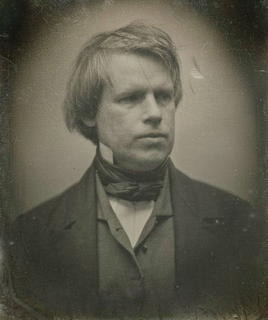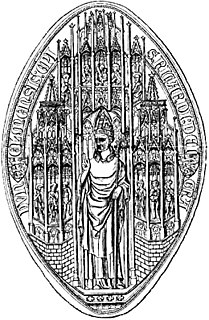A Quote by Samuel Johnson
So willing is every man to flatter himself, that the difference between approving laws, and obeying them, is frequently forgotten; he that acknowledges the obligations of morality and pleases his vanity with enforcing them to others, concludes himself zealous in the cause of virtue.
Related Quotes
Every man is of importance to himself, and, therefore, in his own opinion, to others; and, supposing the world already acquainted with his pleasures and his pains, is perhaps the first to publish injuries or misfortunes which had never been known unless related by himself, and at which those that hear them will only laugh, for no man sympathises with the sorrows of vanity.
I believe that the unity of man as opposed to other living things derives from the fact that man is the conscious life of himself. Man is conscious of himself, of his future, which is
death, of his smallness, of his impotence; he is aware of others as others; man is in nature, subject to its laws even if he transcends it with his thought.
Man—every man—is an end in himself, not a means to the ends of others; he must live for his own sake, neither sacrificing himself to others nor sacrificing others to himself; he must work for his rational self-interest, with the achievement of his own happiness as the highest moral purpose of his life.
And often he who has chosen the fate of the artist because he felt himself to be different soon realizes that he can maintain neither his art nor his difference unless he admits that he is like the others. The artist forges himself to the others, midway between the beauty he cannot do without and the community he cannot tear himself away from.
The Lord called Himself and is the 'good Shepherd' (Jn. 10:11). If you believe in His guidance, then you will understand by your heart that as a zealous shepherd when feeding his flock does not allow the sheep to disperse, but gathers them together, so also the Lord pastures our souls, not allowing them to wander in falsehood and sins, but gathering them on the path of virtue, and not allowing the mental wolf to steal and scatter them.
A man only begins to be a man when he ceases to whine and revile, and commences to search for the hidden justice which regulates his life. And he adapts his mind to that regulating factor, he ceases to accuse others as the cause of his condition, and builds himself up in strong and noble thoughts; ceases to kick against circumstances, but begins to use them as aids to his more rapid progress, and as a means of the hidden powers and possibilities within himself.
There is no hope for the world unless and until we formulate, accept and state publicly a true moral code of individualism, based on man's inalienable right to live for himself. Neither to hurt nor to serve his brothers, but to be independent of them in his function and in his motive. Neither to sacrifice them for himself nor to sacrifice himself for them.
Not selfishness, but precisely the absence of a self. Look at them. The man who cheats and lies, but preserves a respectable front. He knows himself to be dishonest, but others think he’s honest and he derives his self-respect from that, second-hand. The man who takes credit for an achievement which is not his own. He knows himself to be mediocre, but he’s great in the eyes of others.
The library...of wisdom is more precious than all riches, and nothing that can be wished for is worthy to be compared with it. Whosoever therefore acknowledges himself to be a zealous follower of truth, of happiness, of wisdom, of science, or even of faith, must of necessity make himself a lover of books.
It is thus religion infatuates man from his infancy, fills him with vanity and fanaticism: if he has a heated imagination it drives him on to fury; if he has activity, it makes him a madman, who is frequently as cruel to himself, as he is dangerous and incommodious to others: if, on the contrary, he be phlegmatic or of a slothful habit, he becomes melancholy and is useless to society.


































